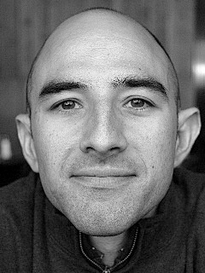 Meet the Author
Meet the Author
David Sehat is assistant professor of history at Georgia State University. He earned his Ph.D. in U.S. History from the University of North Carolina at Chapel Hill in 2007. The Myth of American Religious Freedom (2011) is Sehat’s first book.
Book Basics
Today most Americans believe that our country has a rich history of religious freedom. This pervasive perspective stands in contrast to our nation’s actual practices, which have been less than ideal since the beginning. While progress has been made toward a society with true religious freedom, it has been uneven, slow and incomplete. Furthermore, most contemporary accounts idealize the past or cast it in a more favorable light than is historically credible.
True to his discipline, Sehat provides an historical account of what he understands to be the real story of American religious freedom. Based on my own rather limited prior study of the subject matter, I found nothing in the text that seemed misplaced or without appropriate context. Unfortunately, Sehat’s book is a more difficult read than it should be due to his writing style. His over-reliance on lengthy and complex sentences as well as his inconsistency in effectively developing arguments for a broad readership are shortcomings.
So What?
Neither progressive nor conservative Christians typically offer an understanding on American religious history that matches with the account provided by Sehat. Furthermore, the two camps have been engaged in “intense conflict” over the proper perspective regarding the “public role of religion” (p.283). In short:
Religious conservatives believe that the United States exists as a free society because of its divinely ordained moral foundation. The institutions of civil society, especially the church, the family, and the many voluntary organizations with religious origins, buttress the state’s efforts to enforce the moral norms that have made the United States great. When these mediating institutions fail, in the conservative view, the coercion of law must step in to tame rogue individuals. By contrast, liberals claim that individuals ought to be trusted to make moral choices. In a world of divergent moral ideals, only by allowing individuals to make those choices can the United States avoid coercive authoritarianism (p.283).
With which of these two perspectives do you agree? Why?
In what way(s) would you agree/disagree with the following statement: America has been a global leader in religious freedom since its earliest days, and has, over time, increasingly provided religious freedom to all within its borders.
An Alternative Read
For those who would like to consider how both the liberals and conservatives often misunderstand the history of religious freedom in America, I recommend Sehat’s article in the Washington Post: “Five Myths About Church and State in America.”
David Sehat. The Myth of American Religious Freedom (Oxford, 2011). ISBN: 97800195388763.